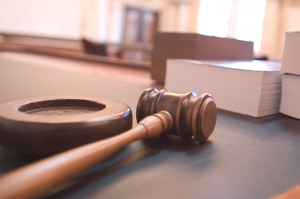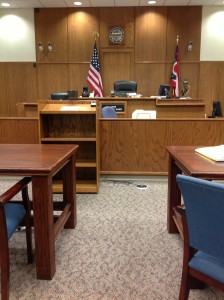The recent announcement that the grand jury chose not to indict the Ferguson, Missouri police officer who shot and killed unarmed teenager Michael Brown this past summer on charges of first-degree murder or manslaughter raised many questions, the most troubling for many being, “Why shouldn’t Officer Wilson at least stand trial?”

Purpose of Chicago Grand Jury
It is often said that “a grand jury can indict a ham sandwich.” And while this is not true, the statement comes from the fact that the burden of proof the prosecution must meet in a grand jury is different than the burden of proof the prosecution must meet in a criminal trial. At trial, the prosecution must prove the defendant’s guilt beyond a reasonable doubt.
But in order for a grand jury to hand down an indictment, the prosecution must only prove that there is probable cause to show that the defendant committed the charged offense. If the grand jury finds that there is insufficient evidence that the defendant did not commit the crime, it will vote not to indict, and all charges against the defendant are dismissed.
The purpose of the grand jury, then, is not to decide the guilt or innocence of a criminal defendant, although arguably, the fact that they found insufficient evidence to send the defendant to trial is tantamount to their profession of his innocence.
How the Grand Jury Works
The grand jury is similar to a jury in a criminal trial in that the jurors review evidence provided by the prosecutor and hear witness testimony. But in many ways it is quite different. Because the purpose of the proceeding is to determine if there is sufficient evidence to put the defendant on trial, and not to determine his guilt or innocence, only the prosecution puts on a case; the jurors never hear from the defense attorney.
In fact, a defense attorney is not present at the grand jury and, unless the prosecution plans to call him as a witness, neither is the defendant. Grand jury proceedings are secret, and the testimony, evidence and witnesses presented in the proceedings are also kept secret, unless ordered released by the judge or released by the prosecutor as part of his duties. Grand jury proceedings are so secret, that in some cases the person being indicted does not even know that he is the subject of a grand jury until the indictment is handed down.
All evidence, regardless of whether it will ultimately be admitted in court, is presented to the grand jury. The regular rules of evidence that apply to criminal trials are inapplicable in grand juries. And again, because the purpose of the grand jury is only to determine if there is enough evidence to support the idea that the defendant committed the charged crime, and not to prove his guilt or innocence, it does not matter whether the evidence was obtained in violation of the Fourth Amendment prohibition against unlawful search and seizures or any other law. Any evidence the prosecution has against the defendant is presented.
In addition to the evidence presented by the prosecution, the grand jury may consider information called to its attention by the court or learned in its investigation of other matters. The grand jury may also request permission to conduct its own investigation, including the right to subpoena witnesses or other documents.
Continue reading
![]() Erick Maya has successfully appealed his conviction by arguing that he suffered from ineffective assistance of counsel. This is despite the fact that he was represented by one of the most highly-regarded criminal defense attorneys in Illinois, George Lenard. Maya was accused and convicted of murdering Romeoville 15-year-old Briana Valle in 2014 in a highly publicized criminal trial. The case brought to light several issues in the age of the internet including Facebook stalking.
Erick Maya has successfully appealed his conviction by arguing that he suffered from ineffective assistance of counsel. This is despite the fact that he was represented by one of the most highly-regarded criminal defense attorneys in Illinois, George Lenard. Maya was accused and convicted of murdering Romeoville 15-year-old Briana Valle in 2014 in a highly publicized criminal trial. The case brought to light several issues in the age of the internet including Facebook stalking.  Chicago Criminal Lawyer Blog
Chicago Criminal Lawyer Blog





